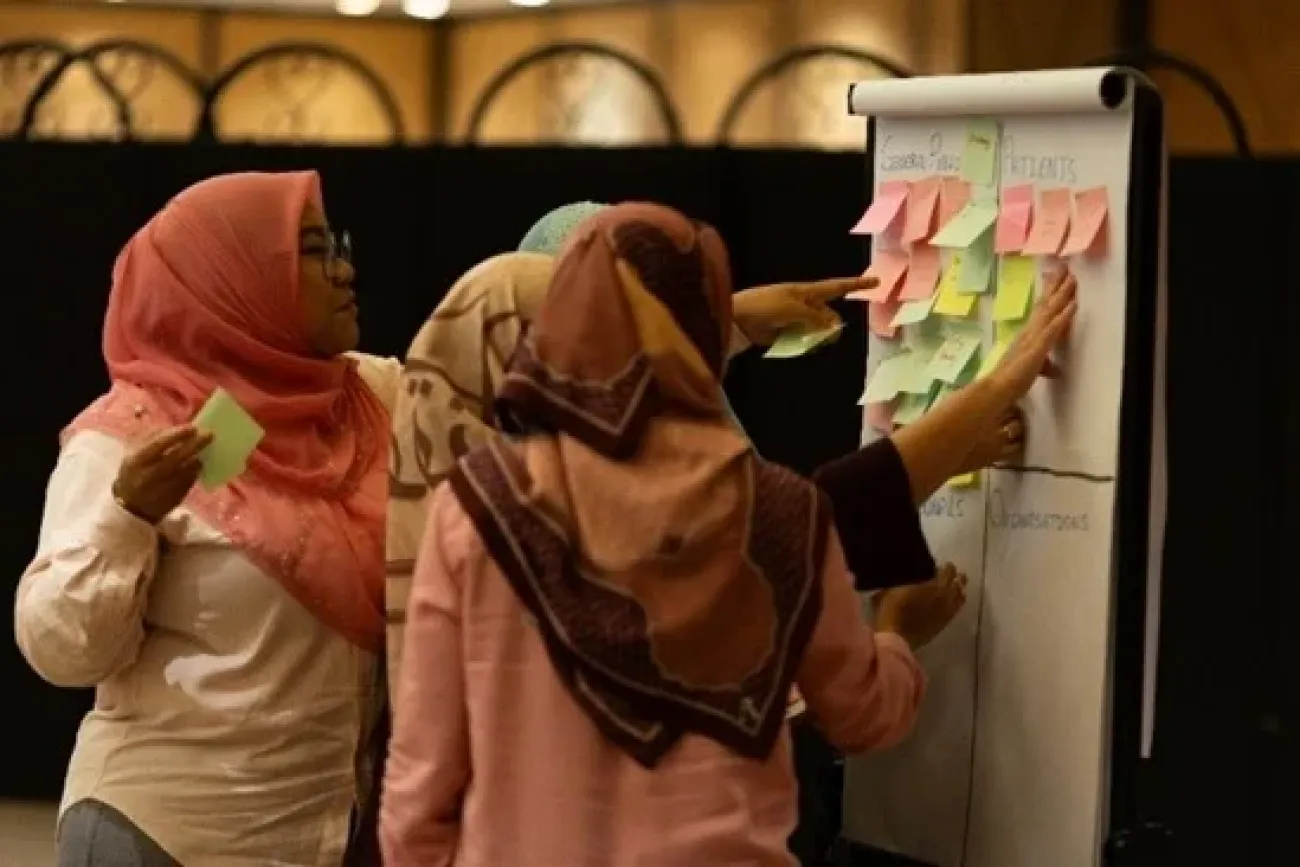Capacity building to embed behavioural insights for better health outcomes

Human behaviour, influenced by psychological, social, cultural, and environmental factors, shapes individual health and well-being.
Human behaviour, influenced by psychological, social, cultural, and environmental factors, shapes individual health and well-being. Behavioural insights leverages this understanding to design policies and interventions that encourage positive behaviours.
The World Health Organization (WHO) in collaboration with the Institute of Health Behavioural Research, Ministry of Health Malaysia co-organized a 3-day workshop in Kuala Lumpur to build capacity on behavioural insights for better health for Health Education Officers from the Ministry of Health at Federal and State levels.

Group photo at the Behavioural Insights workshop in Kuala Lumpur, Malaysia.
This timely workshop was held in alignment with the ‘Behavioural sciences for better health’ resolution that was adopted at the seventhy-sixth World Health Assembly in May 2023, which calls on Member States to strengthen the capacity of healthcare professionals in implementing behavioural science approaches in patient care and various public health functions.
During his opening remarks, Dr Rabindra Abeyasinghe, WHO Representative to Malaysia, Brunei Darussalam and Singapore said, “WHO has been very pleased to partner with the Ministry of Health Malaysia as it moved its first-ever resolution at the World Health Assembly in May this year on the use of behavioural science for better health. The resolution specifies that WHO will support Member States to mainstream behavioural science in public health responses, and develop the capacity to do so – and this is our contribution to acknowledge the great work Malaysia has been doing in behavioural science, particularly during the COVID-19 response."
Also present at the opening of the workshop, Datuk Dr Nor Fariza bt Ngah, Deputy Director General of Health (Research and Technical Support) said, “Despite limitations in terms of resources, we must employ creative solutions to expand our capacity in behavioural sciences. This workshop serves as a platform to equip participants with knowledge as well as skills to navigate and contribute effectively to the evolving landscape of behavioural sciences, fostering a more comprehensive understanding and application of these principles in diverse contexts,” during her remarks.
To support and develop the application of behavioural sciences, the workshop enhanced participants’ knowledge of behavioural sciences and equipped them with skills in applying the tools, methods and approaches in public health. It included modules based on key behavioural science concepts, case studies of the application of behavioural insights and interactive learning activities.

Participants engaging sessions during a behavioural insights training.
“I found this training very interesting and interactive as it involved group discussions, and it was very enlightening as we got to learn many aspects of behavioural insights,” commented Ervinna Marie Donny, a workshop participant and health education officer at the Sabah State Health Department.
The prevalence of noncommunicable diseases is on the rise and this knowledge is essential in elevating primary care and preventing lifestyle diseases by understanding and addressing the root causes of unhealthy behaviours, and facilitating the design of interventions that promote healthier choices and encourage positive habits.

“It is always good to invest in a behavioural insights approach, beyond the clinical model. Lifestyle diseases such as diabetes, hypertension and other chronic diseases are caused by non-clinical factors such as lifestyle and behavioural factors. Behavioural insights have a huge role to play in preventing and managing such diseases,” noted Dr Manimaran Krishnan Kaundan, Director of Institute for Health Behavioural Research.
Establishing behavioural insights function within the ministry at state and federal levels is crucial for informed policymaking. It enhances understanding of public behaviour, enabling tailored interventions.
This was highlighted by Dr Saiful Adli Suhaimi, Head of the Behavioural Insights Unit, Institute for Health Behavioural Research. “This workshop is important as we move to establish behavioural insights function at each level of the Ministry of Health, starting with the state level, to form a core group of behavioural insights practitioners among our healthcare providers,” he said.
This workshop represents a significant step forward in healthcare, demonstrating a dedication to proactive and well-informed health approaches. By incorporating behavioural insights, healthcare professionals are not only improving individual patient outcomes but also contributing to the broader goal of building healthier and more resilient communities.
Datuk Dr. Muhammad Radzi Abu Hassan, Director General of Health said, “I wholeheartedly endorse the initiative to integrate behavioural science within the health context, as it serves as a strategy to formulate more effective intervention strategies and policies that will ultimately benefit the people.”
This workshop was supported by funding from the Federal Republic of Germany.



